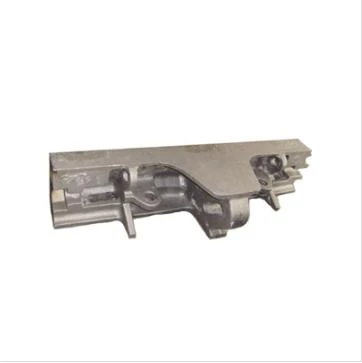- Afrikaans
- Albanian
- Amharic
- Arabic
- Armenian
- Azerbaijani
- Basque
- Belarusian
- Bengali
- Bosnian
- Bulgarian
- Catalan
- Cebuano
- China
- China (Taiwan)
- Corsican
- Croatian
- Czech
- Danish
- Dutch
- English
- Esperanto
- Estonian
- Finnish
- French
- Frisian
- Galician
- Georgian
- German
- Greek
- Gujarati
- Haitian Creole
- hausa
- hawaiian
- Hebrew
- Hindi
- Miao
- Hungarian
- Icelandic
- igbo
- Indonesian
- irish
- Italian
- Japanese
- Javanese
- Kannada
- kazakh
- Khmer
- Rwandese
- Korean
- Kurdish
- Kyrgyz
- Lao
- Latin
- Latvian
- Lithuanian
- Luxembourgish
- Macedonian
- Malgashi
- Malay
- Malayalam
- Maltese
- Maori
- Marathi
- Mongolian
- Myanmar
- Nepali
- Norwegian
- Norwegian
- Occitan
- Pashto
- Persian
- Polish
- Portuguese
- Punjabi
- Romanian
- Russian
- Samoan
- Scottish Gaelic
- Serbian
- Sesotho
- Shona
- Sindhi
- Sinhala
- Slovak
- Slovenian
- Somali
- Spanish
- Sundanese
- Swahili
- Swedish
- Tagalog
- Tajik
- Tamil
- Tatar
- Telugu
- Thai
- Turkish
- Turkmen
- Ukrainian
- Urdu
- Uighur
- Uzbek
- Vietnamese
- Welsh
- Bantu
- Yiddish
- Yoruba
- Zulu
ធ្នូ . 01, 2024 19:29 Back to list
Understanding Boiler Capacity Ratings for Efficient Performance and Energy Usage
Understanding Boiler Capacity Ratings Importance and Implications
Boilers play a crucial role in various industries, providing essential heat for processes such as water heating, steam generation, and power production. However, the efficiency and effectiveness of a boiler largely depend on its capacity, which is measured in terms of boiler capacity ratings. Understanding these ratings is essential for selecting the right boiler for specific applications, optimizing performance, and ensuring energy efficiency.
What is Boiler Capacity?
Boiler capacity refers to the amount of steam or hot water a boiler can produce in a given timeframe. It is typically expressed in BTUs (British Thermal Units), kilowatts (kW), or pounds of steam per hour (lbs/hr). The capacity rating of a boiler is fundamental for determining its suitability for particular operational needs. A boiler with insufficient capacity may struggle to meet demand, leading to operational inefficiencies, while an oversized boiler can result in increased fuel consumption and higher operational costs.
Factors Influencing Boiler Capacity Ratings
1. Type of Boiler Different types of boilers, such as fire-tube, water-tube, and electric boilers, have varying capacity limitations based on their design and operational principles. Fire-tube boilers may have higher capacities for large-scale heating, whereas electric boilers are often preferred for smaller applications.
2. Fuel Type The type of fuel used (natural gas, oil, coal, or biomass) can significantly impact the capacity and efficiency of the boiler. Some fuel types may provide higher energy output, enhancing the boiler's performance and capacity.
3. Operating Pressure The pressure at which a boiler operates influences its capacity. Higher operating pressures typically allow boilers to produce steam more efficiently, increasing overall capacity.
4. Heat Transfer Surface Area A boiler’s efficiency and capacity are also impacted by the size and design of its heat exchange surfaces. A larger heat transfer area can absorb more heat, which helps in producing steam or hot water more effectively.
Determining Boiler Capacity Requirements
When selecting a boiler, it’s crucial to accurately determine the required capacity to ensure optimal performance and avoid issues such as oversizing or undersizing. Here are some steps in the assessment process
boiler capacity ratings

1. Load Calculation The first step in determining boiler capacity involves analyzing the heating load requirements of the facility or process. This includes calculating both peak and average loads to ensure the boiler can meet varying demands.
2. Consideration of Safety Margins It’s wise to include a safety margin in the capacity calculations. This ensures the boiler can accommodate unexpected increases in demand or losses in efficiency over time.
3. Efficiency Ratings Look for the efficiency ratings of different boilers. A high-efficiency boiler may have a lower capacity rating but can still meet the required heating load effectively.
Implications of Boiler Capacity Ratings
Understanding boiler capacity ratings has several implications for businesses and industries
1. Cost-Effectiveness Properly sizing a boiler based on capacity ratings can lead to significant cost savings in energy consumption, maintenance, and replacement costs. Over time, this translates to more efficient operations and lower overall expenses.
2. Environmental Impact Efficient boiler operation minimizes fuel consumption, which reduces greenhouse gas emissions and the overall carbon footprint of industrial operations. Choosing the right boiler capacity can thus be a step towards more sustainable practices.
3. Regulatory Compliance Industries are often subject to regulations concerning emissions and energy efficiency. Having a suitably rated boiler ensures compliance with legal requirements and industry standards.
Conclusion
Boiler capacity ratings are essential for the effective operation of steam and hot water systems across various industries. By understanding the factors that influence these ratings, accurately assessing heating loads, and selecting the appropriate boiler, businesses can enhance their efficiency, reduce costs, and contribute to sustainable practices. As industries continue to seek improvements in energy consumption and operational efficiency, a thorough understanding of boiler capacity ratings remains a pivotal aspect of successful energy management.
-
8mm Thin-Walled Cast Steel Manhole Cover Pallet Bottom Ring | Durable
NewsAug.04,2025
-
Premium Cast Iron Water Main Pipe: Durable, Corrosion-Resistant
NewsAug.03,2025
-
Durable Cast Iron Water Mains | AI-Optimized Systems
NewsAug.02,2025
-
High-Efficiency Propane Boiler for Baseboard Heat | Save Energy
NewsAug.01,2025
-
Premium Source Suppliers for Various Gray Iron Castings
NewsJul.31,2025
-
Durable Cast Iron Water Main Pipes | Long-Lasting
NewsJul.31,2025


